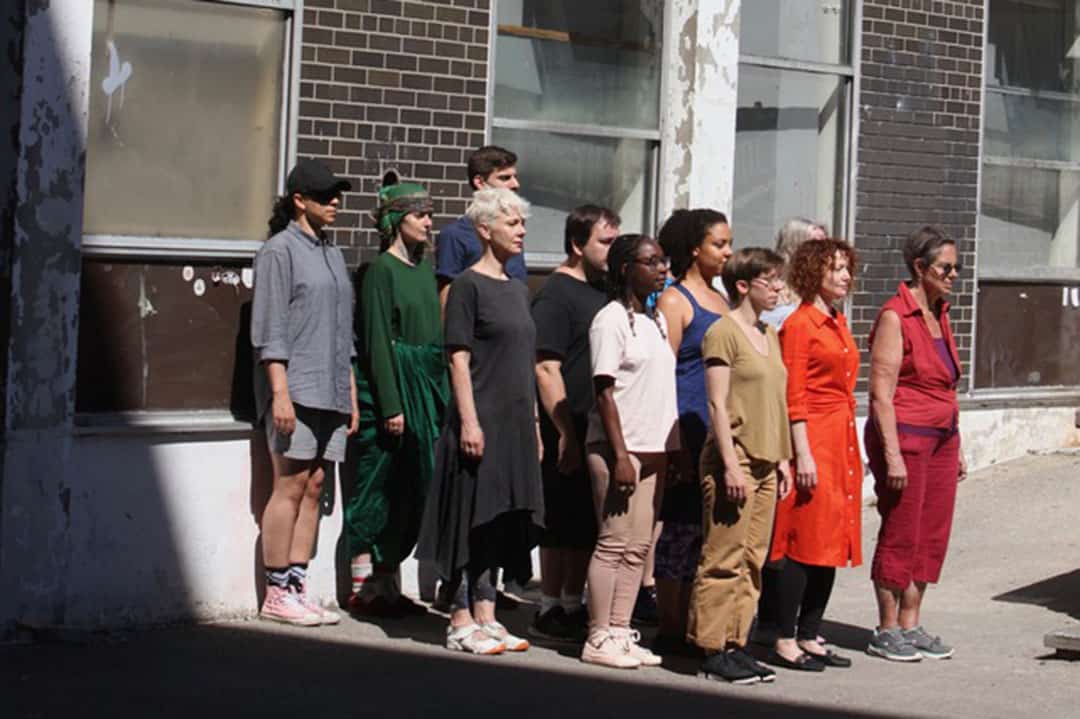“Being a student is difficult and being an artist is difficult,” said choreographer Cara Spooner. That’s why it’s important for members of the U of T community to come together and discuss the intersection of arts and mental health.
On October 26 at the Helen Gardiner Phelan Playhouse, Spooner screened part of the dance film You&Us, which she worked on as the choreographer. She also discussed the creative process of making the film, whose cast includes both professional dancers and those who might never have dubbed themselves dancers at all. Spooner described her own take on what makes an artist in an interview leading up to the event: “People are artists if they say they are,” she said.
Spooner, a U of T alumna, is the Education and Training Manager at Workman Arts, a Toronto-based arts and mental health organization. Since its founding in 1987 by a former Centre for Addiction and Mental Health psychiatric nurse, Workman has grown from a theatre company of eight artists to an organization of over 280 member artists. Among Workman’s objectives are supporting artists with mental illness and addiction issues, as well as publicly exploring these issues through art.
“We also deal with artists’ identity first at Workman. Often the stigmatization around mental health and addiction is that in a lot of settings, that’s how you’re seen as. We don’t ask for diagnosis. It’s a come-as-you-are space for people who are dedicated to honing their craft and who are dedicated to working and to making art,” said Spooner.
You&Us also works to shift perspectives. Usually, an audience member is someone outside, looking in. In You&Us, filmmaker Aaron Rotenberg puts the audience at the centre of the action by filming in 360 degrees using virtual reality techniques. Shot in a series of courtyards around the Christie Pits area, it involves simple movements, like walking, that create a sense of unity among all the dancers. “With the film you don’t know who is who, and it doesn’t matter,” said Spooner.
The movements featured in the film evolved through an improvisational process. For Spooner, “How things are made shapes what is made. You can feel in experiencing a product what the process is like.” She commented on the outcome of the collaborative process of creating You&Us — the sense of community that was created. “There’s a vulnerability in creating things together in a way that people listen to each other in physical and verbal ways… [There’s] an opening up of different ways of being in the world,” she said.
The screening of You&Us was presented by the University of Toronto’s newly formed Institute for Dance Studies, which is under the leadership of Dr. Seika Boye, a lecturer in the Centre for Drama, Theatre and Performance Studies. A research community hosted within the centre, the Institute for Dance Studies is dedicated to supporting dance-focused research across disciplines and to facilitating conversations through and about dance at U of T.
You&Us also kicked off the institute’s Dance With Me curatorial partnerships series, which focuses on partnership-based projects that work toward more equity and diversity in dance. The programming for this year includes the Focus on Dance Research Days from November 9–11 and an appearance by Jill Johnson of Harvard University early in 2018.


